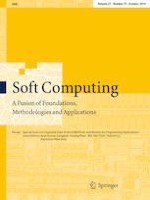11-09-2018 | Methodologies and Application
Dominance rule and opposition-based particle swarm optimization for two-stage assembly scheduling with time cumulated learning effect
Published in: Soft Computing | Issue 19/2019
Log inActivate our intelligent search to find suitable subject content or patents.
Select sections of text to find matching patents with Artificial Intelligence. powered by
Select sections of text to find additional relevant content using AI-assisted search. powered by
